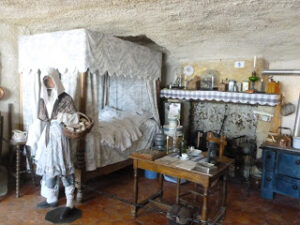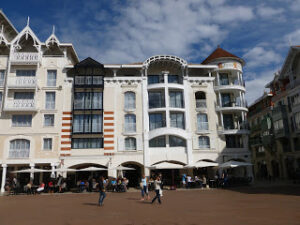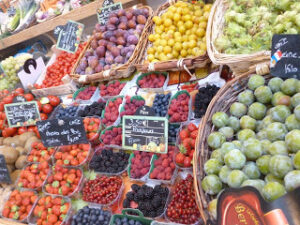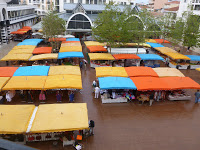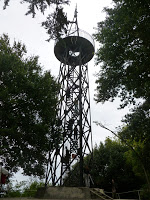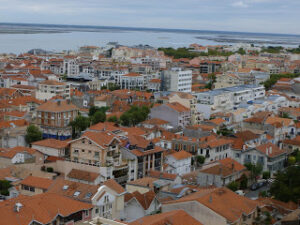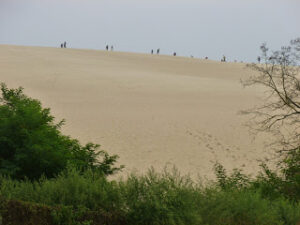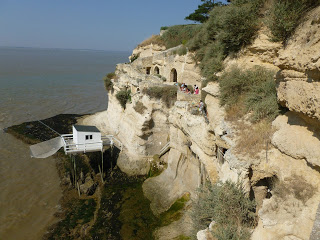
WEST COAST OF FRANCE
Atlantic Ocean, stretches of wide, white sandy beaches interspersed with rocky outcroppings, fishing villages and quaint beach towns compose the west coast of France. We followed it from Brittany down to Spain making several stops along the way. During that time, August turned into September and the crowds disappeared but not the sunshine and blue skies. Consequently, this was one of the more relaxing portions of our trip. We took long walks along the seaside and had leisurely lunches.
About midway down the coast in the area of Royan, the beaches wind around limestone cliffs that were formed about 65 million years ago with the birth of the Alps and the Pyrenees. A little south of Royan on the bank of the Gironde River, you can visit caves in the cliffs that were inhabited since prehistoric times.
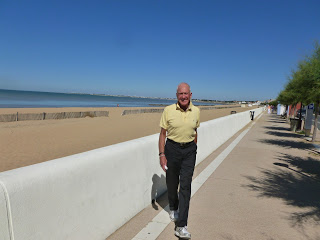
Over the years, they became homes for fishermen and the poor, hiding places for pirates and Protestants. In the 19th century, the caves became popular with people on holiday. The grottoes turned into small hotels and cafes. The last of the cafes is still open in Matata, the grottoes we visited.
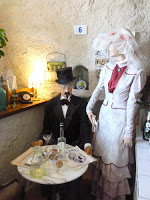
Our final stop in France was the town of Arcachon. I don't know what we liked more - the town or our lovely suite with kitchenette overlooking a popular square. We bought fresh fruit and quiche at the market to make a truly French lunch.
Arcachon Bay is lined with beaches and oyster farms and surrounded by forests and natural habitats. The town of Arcachon is on one side of the bay and Cap Ferrat on the other.
Slightly south of Arcachon is Europe's largest sand dune, the Dune du Pilat. It is about 2 miles long, 1,600 feet wide and over 300 feet high. It is beautiful but a little scary in that it moves inland at a rate of 15 feet a year. This is a problem all over the world with 15 million acres of new desert being created each year.
After 53 nights in France, it is time to say Auvoir and head into Spain.
